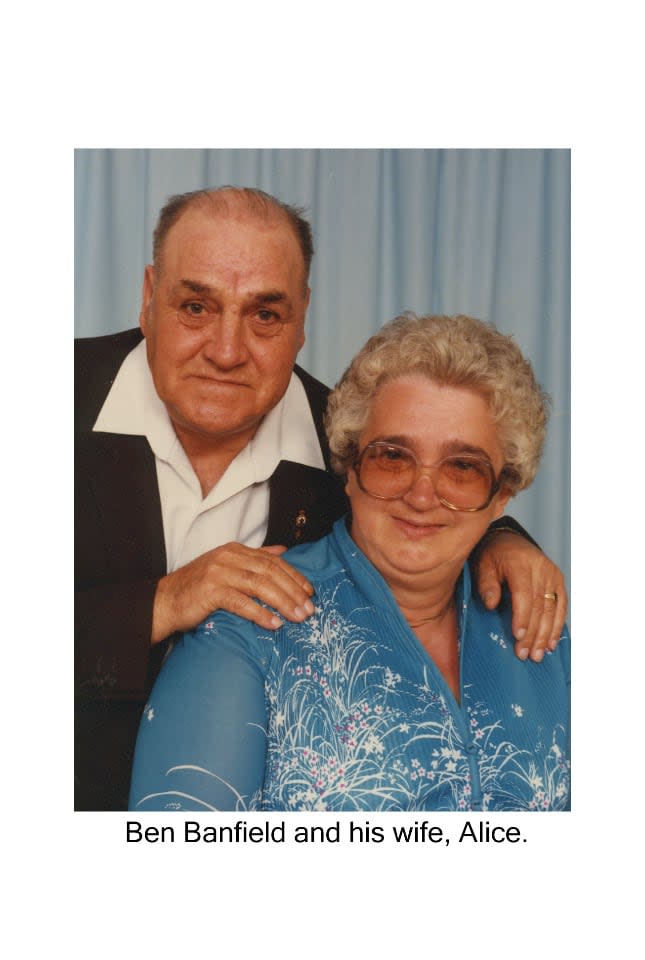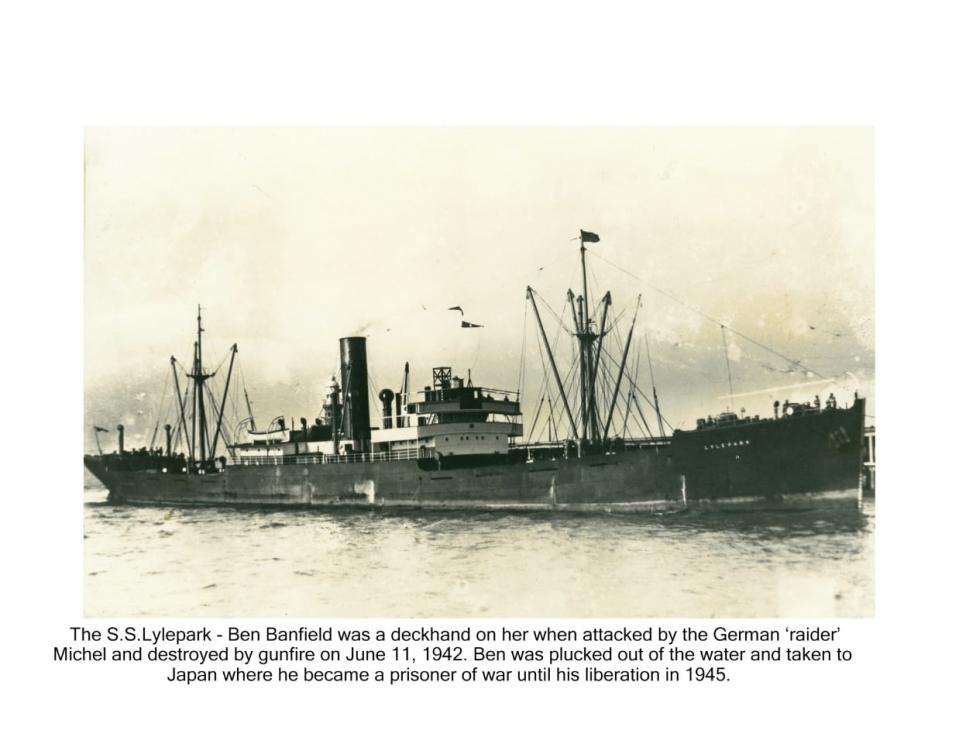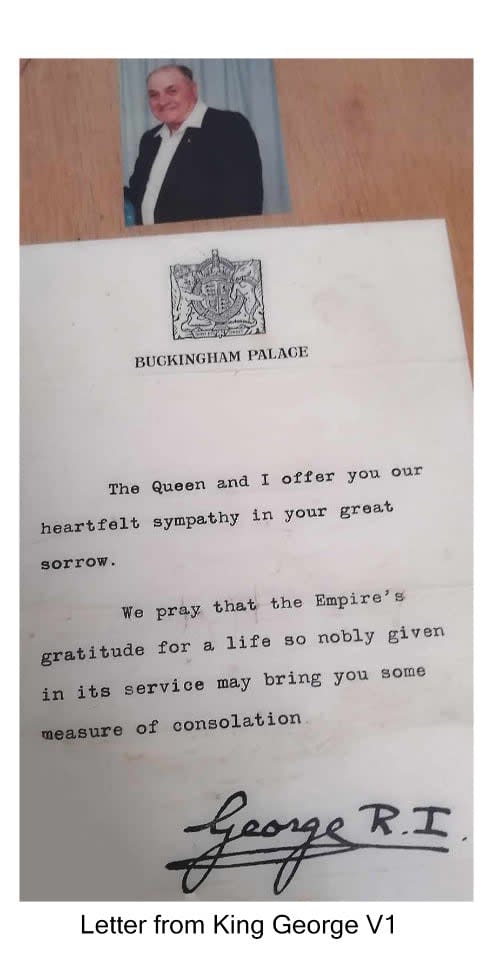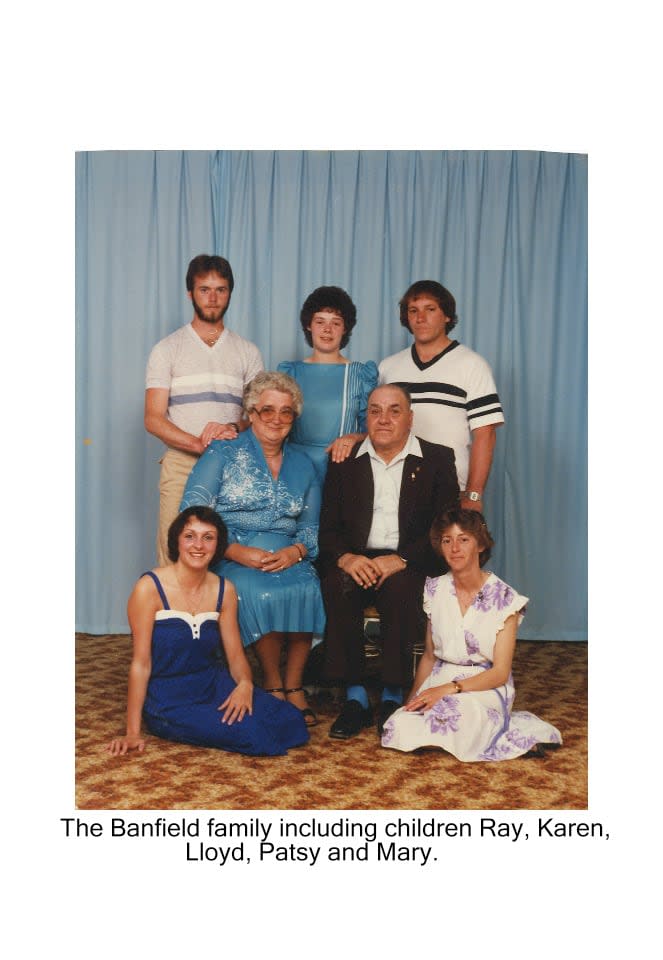Missing and presumed drowned, this Grand Bank man survived 3 years in POW camps in WW II


Ben Banfield, pictured with his wife, Alice, spent three years as a prisoner of war during the Second World War. (Allan Stoodley)
It was 1939, early in the Second World War, when the British Admiralty sent out an urgent call asking Newfoundlanders to volunteer for merchant service.
According to Herb Wells in a Southern Gazette article dated Jan. 30, 1985, "There was a quick response, and within a month or so 500 Newfoundlanders had answered the call — the majority of them coming from the Placentia Bay and Fortune Bay area, including Marystown and Grand Bank."
Ben Banfield of Grand Bank, the 24-year-old son of Anne and William Banfield, was one of those volunteers. He served six years in the Navy, including three years being held as a prisoner of war.
In 1985, Wells interviewed Banfield, then in his 60s, at his home on Evans Street in Grand Bank.
"He is a quiet, modest man; his gaze is warm and friendly, his eyes alert, his chin strong," Wells wrote at the time. "But inside the calm beats the fierce spirit of a survivor. He even came back from the dead, and on that miracle hangs the saga of Ben Banfield."
Escaping German U-boats
In June 1940, Banfield was a crew member of the SS Ronwynn, which was carrying a cargo of munitions destined for Rochefort, one of the vital ports in the Bay of Biscay. In the words of Herb Wells, "The waters of this bay lay in the grip of an enemy vise, between the German forces racing to the French coast, and a steel wall of enemy U-boat killers lurking offshore. Into the jaws of this trap steamed the SS Ronwynn."
On orders, Banfield and his crew scuttled the Ronwynn to prevent her cargo from falling into enemy hands. Luckily, he managed to escape aboard one of the last ships to get out of the Bay of Biscay.
For the next few years, Banfield sailed on the oceans of the world as a crew member of the SS Lylepark, carrying war materials to the Far East and Pacific.

Ben Banfield was a deckhand on this ship, the S.S. Lylepark, when it was attacked by the German raider Michel and destroyed by gunfire on June 11, 1942. Banfield was plucked out of the water and taken to Japan, where was a prisoner of war until his liberation in 1945. (Submitted by Allan Stoodley)
Unfortunately for the young man from Grand Bank, the perils of war at sea caught up with him. In March 1941, the German raider Michel, under cover of darkness, crept in close and opened up a savage gunfire attack.
"I had come upon deck to take my watch," Banfield told Wells. "We were struck midships — we had no time for anything. We jumped and clung to the one lifeboat."
Banfield suffered a severe arm wound. After three hours in the water he and about half the crew were fished out of the sea and made prisoners of war. The rest of the crew went down with the ship.
According to Wells, "Next day at sea the Michel received a coded message from Berlin, ordering the skipper to proceed to a secret rendezvous in the South Atlantic. There, Rocketshell — the raider's skipper — transferred at night his prisoners, including Ben Banfield, to the German prison ship Doggerbank."
He was confined to prison quarters (on the Doggerbank) for two months as the ship operated in the tropics. In August it arrived in Japan and docked until mid-September. Ben then spent three years as a PoW, mostly in the Fukuoka camp on the island of Kyushu.
Herb Wells's article continued, "In the meantime the Admiralty learned of the Lylepark's destruction but, having little data on the fate of the crew, assumed Ben Banfield had drowned. The following message came to Ben's mother at Grand Bank from King George VI:
"The Queen and I offer you our heartfelt sympathy in your sorrow. We pray that the Empire's gratitude for a life so nobly given may bring you some consolation."
Prisoners of war worked in coal mines and steel mills. Banfield was sent back to work in a large farm on the outskirts of Fukuoka. During his years in the camp he was issued only one pair of pants, a coat and three blankets. He wore out the one pair of wooden sandals in which he worked all seasons. Even in the bitter cold of winter they were taken in open trucks to work.
Sanitary conditions were primitive, and he had to sleep on the floor in overcrowded barracks.

Ben Banfield's mother received this letter from King George VI when Banfield was presumed dead. (Allan Stoodley)
Food was scarce. In one instance prisoners caught a cat and cooked it. One day the guard's dog disappeared. Another time rats were captured in a dump "and made a rare treat for a meal," said Banfield.
Lack of medicine allowed disease to run rampant. Vermin infested the camp.
Caught stealing rice, Banfield was immersed in ice cold water until he was unconscious. Another time, he was stretched and tortured on the rack, left in extreme pain."
In the early summer of 1945 American aircraft carried out a heavy bombing raid on targets near the Fukuoka camp — when the guards reacted by intensifying their brutal treatment, Banfield sensed the end of the war was getting near.
Unknown to him, on Aug. 6, the atomic bomb was dropped on Hiroshima, and three days later a second bomb devastated Nagasaki. He was lucky because his camp was 160 kilometres south of Hiroshima and 120 miles north of Nagasaki.
Japan surrendered on Aug. 15, and soon American aircraft swooped low over the camp, dropping food.
Banfield began his journey home, first by aircraft carrier to Manila and then across the Pacific, and taking the railway across Canada. At Port aux Basques he got to a phone and called his mother.
"Imagine the scene at Grand Bank when Anne Banfield heard her son's voice — he had risen from the dead," wrote Herb Wells.

The Banfield family, including children Ray, Karen, Lloyd, Patsy and Mary. (Allan Stoodley)
When he came ashore on the wharf at Grand Bank an arch had been erected in his honour. Mother and son were reunited for the first time in six years.
Some time later Banfield started working at the cooper store, where 14 men were employed making wooden barrels that salt fish would be shipped in. George Weymouth, now age 90, worked there with him for four or five years.
He told me recently that Ben seldom spoke about his years as a prisoner of war. Banfield was "a jolly fellow," he explained, who would give you the shirt off his back. "He was great to work with and I really liked him".
When Banfield's great-granddaughter Brooke Hoskins, (nee Banfield) was in Grade 7, she produced a project for her school's heritage fair entitled "Benjamin Banfield: My Great-Grandfather."
When he returned home from the war, she told me, he met Alice Mayo of Fortune, whom he married in 1946.
"As a young couple they suffered many heartbreaking losses of their natural children, so they decided to adopt. They officially adopted four children — Karen, Ray, Lloyd and Patsy — and also raised three other children from a very young age, Mary, Phyllis and Evelyn. In addition they provided love and support to over 200 foster children."
Patsy and Lloyd, both in their late 60s, are two of the oldest Banfield children. Patsy told me recently that her father never did talk much about his war years. The Royal Canadian Legion or a similar organization once made an offer for him to return to Japan, she said, but he refused. He could never forgive his captors for how he was treated, she explained.
He died in 1994 in his late 70s.
Download our free CBC News app to sign up for push alerts for CBC Newfoundland and Labrador. Click here to visit our landing page.


